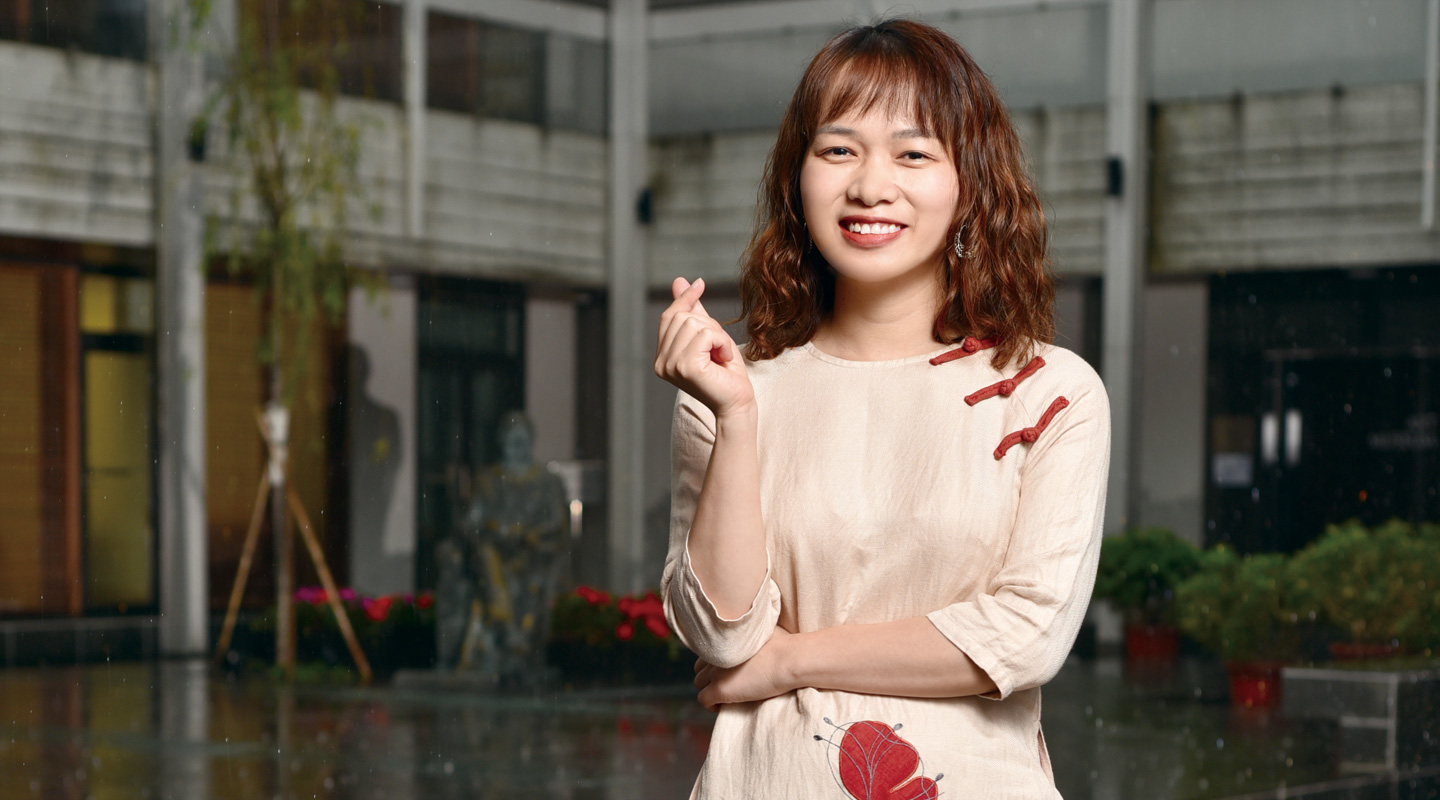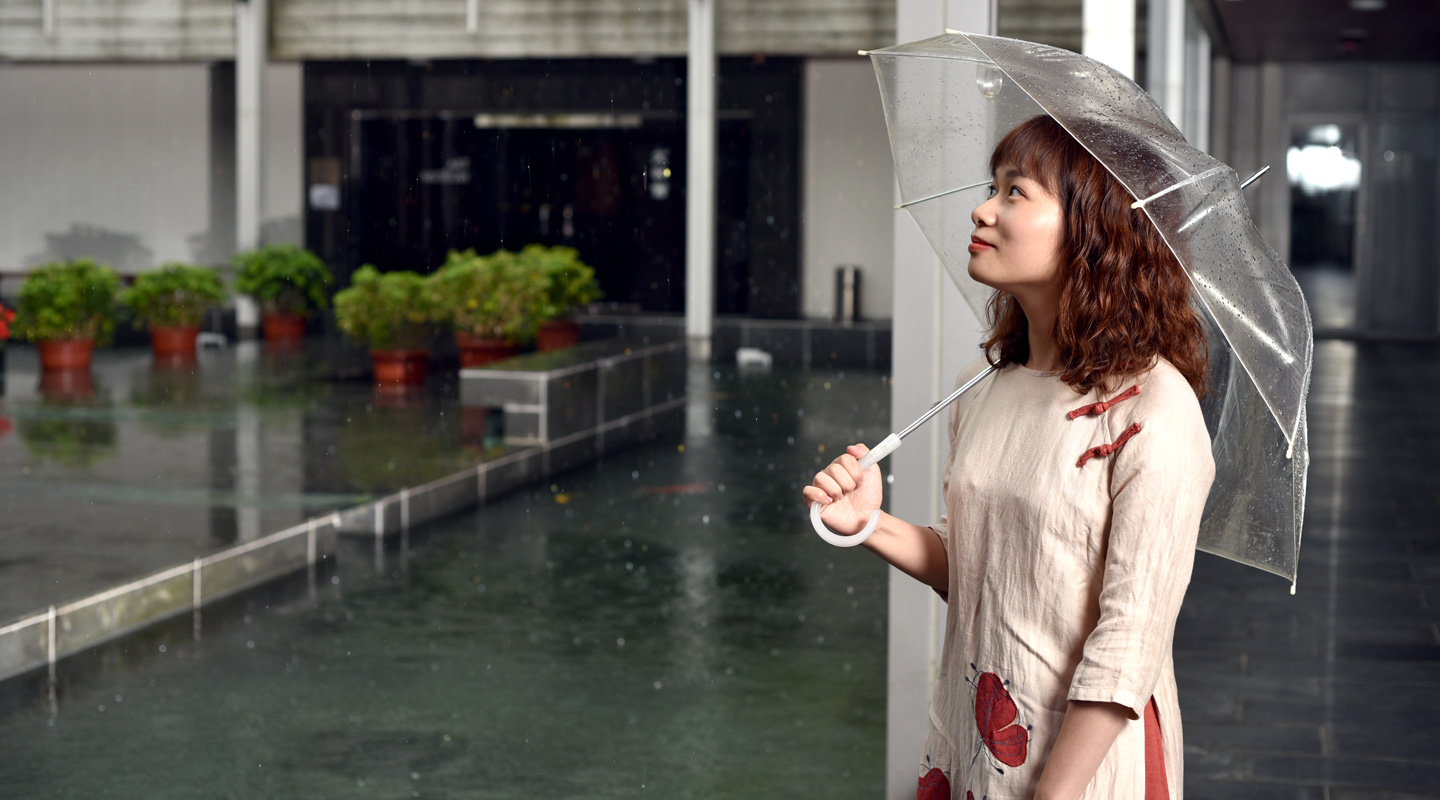On Vietnamese Pho and PhD

Nguyen Thi Hong Quy
- PhD Student in Chinese Language and Literature
CUHK’s only postgraduate from Vietnam talked to the Newsletter about studying in her homeland and in Hong Kong, the uncanny similarities between Vietnamese and Cantonese and her yearning for a bowl of authentic Vietnamese pho.
What does the ‘Thi’ in your name mean?
‘Thi’ exists only in the names of Vietnamese girls born in or before the 80’s. It indicates nothing but the female gender. More and more people are finding this word anachronistic and take it out when naming their children.
I heard that you were a top scorer in the university entrance exam back in Vietnam?
Just one of the dozen top scorers nationwide that year. There were only three subjects. Ten points for each. So it was very likely for people to get the same high scores.
What kind of Chinese learning experiences did you have before you came to Hong Kong?
I’ve been learning Chinese since high school. I got my first degree in teaching Chinese as a foreign language in Vietnam. During my third year I went on an exchange programme in Taiwan. When I came back after six months, people started telling me that my Chinese had a Taiwanese accent. I went on to pursue a master’s degree in Shanghai and studied international Chinese education. After graduation I returned to my alma mater in Vietnam to teach Chinese and design the Vietnamese curriculum for international students.
What made you come to Hong Kong for a doctorate?
When Prof. Tang Sze-wing of CUHK’s Chinese Department came to deliver a lecture where I was working, he got to know that I intended to pursue overseas studies. He encouraged me to apply for the Hong Kong PhD Fellowship Scheme. Though Professor Tang was in the US during my application cycle, he always found time to discuss my research proposal with me. I am so grateful for his generosity and help.
Please tell us about your research area.
My research focuses on comparing Putonghua and Cantonese with Vietnamese. There are many striking similarities between Cantonese and Vietnamese in terms of pronunciation, vocabulary and grammar. Take ‘university’ for example. It almost sounds the same in the two languages. They both have as many as 30 end-of-sentence particles, while Putonghua has only about 10. I hope to find out why.

You’ve been in Hong Kong for over half a year. Did you experience any culture shock?
The biggest shock is when I need to order food in a restaurant. There is so much pressure to make it snappy and without hesitation. It makes me so nervous every time I go out to eat!
What is the biggest difference between studying in Hong Kong and in Vietnam?
Vietnamese students tend to be shy and reluctant to ask questions to their teachers because it suggests they are too dumb to understand what the teachers have said in class. In Hong Kong, I discovered that, even though my classmates are very smart, they also ask questions. I gradually changed my mind-set too.
Which part of Vietnam do you miss most?
I miss the noodles from my hometown Hanoi most. I dream a lot about the aroma of the pho broth. Streets in Vietnam are adorned by pho eateries. The savoury smell rushes to us when we ride past on motorcycles. When I was in Vietnam I did not particularly like having pho. But once I left home, remembering that smell makes me homesick.
Is there any misunderstanding about Vietnam held by Hong Kong people that you want to clarify?
Not much that I know of. But if I have to say something: I would tell Hong Kong people that besides Ha Long Bay, there are many other places of interest in Northern, Middle and Southern Vietnam. In the Northern city of Hanoi, one can tour the Old Quarter with 36 exotic streets. In Hue of Central Vietnam one can visit the ancient city of the Nguyen Dynasty. Ho Chi Minh City in the South shows the young, commercial side of Vietnam.
Christine N.
This article was originally published in No. 537, Newsletter in May 2019.

